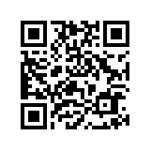【Special issue: Research on Chinese Language Teaching and Learning】Culturally Related Theme Selection in Chinese Text Materials for Heritage Learners: A Case Study on the Needs of Local Chinese School Teachers
Author: Huichen S. Hsiao (Department of Chinese as a Second Language, National Taiwan Normal University)
Vol.&No.:Vol. 59, No. 2
Date:September 2014
Pages:1-34
DOI:10.6210/JNTNULL.2014.59(2).01
Abstract:
This study investigated the selection of cultural themes in commonly used textbooks in North America, aiming to determine the sequencing order of the cultural themes suitable for heritage learners (children aged 7 to 12 years). I am focused on the common cultural topics introduced in current textbooks, and whether the arrangement of these themes is sufficient to cover the comprehensible cultural elements (the so-called “big C” and “small c”). I analyzed four textbooks and compared the results with an online questionnaire on the needs of teachers for understanding the existing gap, to propose a reasonable theme sequence for learners and teachers.
This study involved 30 experienced teachers who taught Chinese at local Chinese schools in the Eastern United States and Canada during 2010-2011. The findings of this study contribute to the field of cultural material compilations regarding heritage learners at local Chinese schools in three ways: 1. by providing evidence that the top three themes in textbooks are “family, school, and human relations”; 2. by demonstrating that the needs and opinions of teachers regarding theme selection are quite different from the themes found in text materials (e.g., festivals, traditional handicrafts and arts, folklore, and nursery rhymes); and 3. by showing that the primary factors that overseas teachers emphasize are “the degree of difficulty of text materials, as well as the language level of the students,” “the natural occurring order of Chinese festivals,” and “the accessibility of teaching materials.” Finally, this study demonstrated the importance of the “learning-by-doing” principle, by concluding that the compilation and selection of cultural themes should be interesting and related to the lives of learners, allowing students to practice what they learn. Nevertheless, the divergence between text materials and practical teaching needs reflect the gap that exists when defining cultural themes in textbooks.
Keywords:culture, cultural teaching materials, theme arrangement, material compilation, heritage learners
 《Full Text》
《Full Text》
